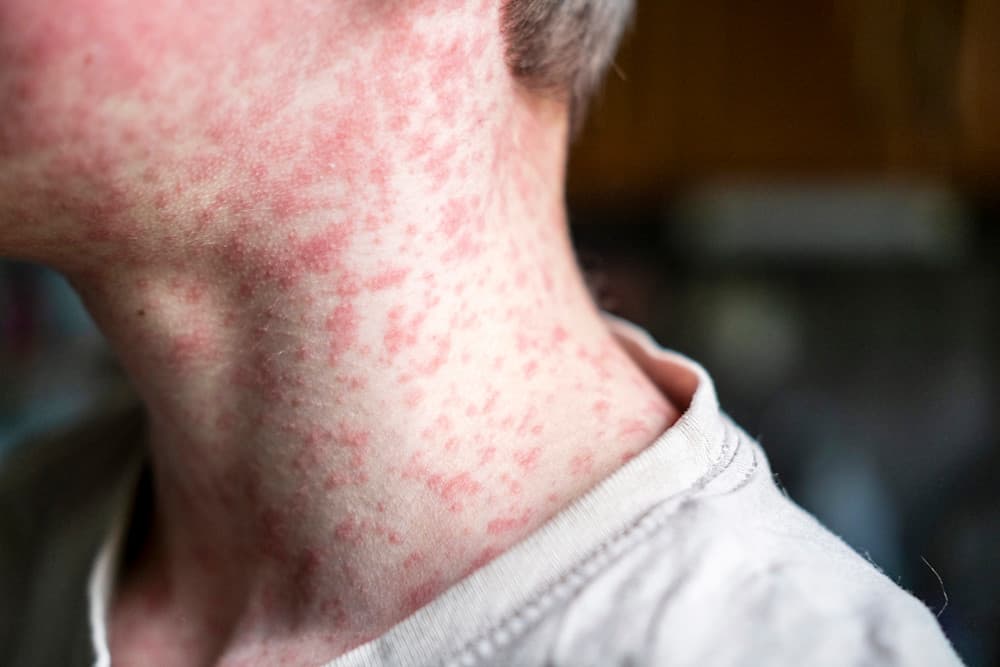Why Are There Different Kinds of COVID-19 Testing?

7 Minutes

Team Curative

Jan 7, 2021
Accurate testing is essential to stop the spread of COVID-19 as we all work to end the pandemic. Health experts believe that frequent testing—even for those who aren’t necessarily feeling sick or showing symptoms—can help control the spread of COVID-19 and help public health officials monitor the global spread while vaccines are being distributed. Testing helps those infected to isolate early, inform others who may be at risk, and minimize the spread.
There are several kinds of COVID-19 tests, and you may be wondering why there are different tests, how they differ, when you should take one, and which one is most accurate. In this blog post, we break down the various COVID-19 tests to help you determine which one is best in different situations.
Types of COVID-19 Testing
Currently, there are two main types of COVID-19 tests:
Diagnostic test: Indicates a current infection.
Antibody test: Indicates a previous infection, however, the patient may have produced antibodies while fighting a current infection.
Diagnostic COVID-19 Tests
A diagnostic test helps to determine if you’re currently infected with the COVID-19 virus. Get this test if you had recent exposure to the virus or experience any related symptoms. All diagnostic tests use a sample collected from the mouth, throat, or nose.
Diagnostic COVID-19 tests are mainly categorized as either molecular tests (PCR) or antigen tests. PCR tests look for viral genetic material, and antigen tests look for viral proteins that trigger an immune response. PCR tests are considered much more accurate than antigen tests.
PCR test: This is the most widely used test and is considered the gold standard since the test can detect genetic material with relatively small samples. While there are different forms of PCR testing (nasal, nasopharyngeal, and oral), a mouth-swab test is non-invasive and easy for anyone to complete. When you schedule a PCR mouth-swab test through Curative, your test result will be available digitally 24 to 48 hours after your test.
Antigen test: Antigen tests are among the cheapest and fastest tests. They detect particular viral proteins. However, this type of test can create a false sense of security as these tests can have a high false negative rate.
Why Are There Different Kinds of Diagnostic Tests?
One of the top questions we receive is why there are multiple kinds of COVID-19 tests. The main takeaway: as the global community worked to efficiently contain the virus, two types of tests emerged—each able to help in different ways.
In August 2020, the U.S. government awarded $760 million to Abbot to distribute 150 million rapid antigen tests. Rapid antigen tests are much cheaper than PCR tests, at $5 per 15-minute test for insurers. (Note: the test is of no charge to patients. Curative provides testing at no out-of-pocket costs for most patients. Insurance may be required at some Curative COVID-19 test sites.) Because they are cheaper with rapid results, but are slightly less accurate, antigen tests are best utilized for testing large groups to get a broad understanding of infection rate.
PCR tests, on the other hand, are more accurate but require more labor and resources. They cost more for insurers than rapid antigen tests and the cost can vary based on the lab—most labs charge insurers around $100 but others have charged as much as $2,315 per test. (Again, Curative provides testing at no out-of-pocket costs for most patients. Insurance may be required at some Curative COVID-19 test sites.)
Because PCR tests are more accurate than antigen tests, they are the best option for individuals confirming whether or not they have COVID-19. Antigen tests are more so designed to give a sweeping bird’s-eye view of a population’s infection rates to make informed public health decisions. Individuals should take a PCR test if they are concerned that they are infected with COVID-19.
Antibody COVID-19 Tests
Antibody testing, usually performed through a blood draw or finger prick at a medical facility or lab center, looks for antibodies, which can indicate whether you’ve had a previous infection. Antibodies are disease-specific proteins that help your body fight current and future infections. However, similarly to how the flu virus mutates every year, coronaviruses are known to mutate and therefore, while someone with antibodies can better fight future infections if they’ve had COVID in the past, antibodies do not guarantee perfect immunity against future infections. This requires everyone, even those who have already contracted the coronavirus, to remain cautious and continue to adhere to CDC guidelines.
It can take one to three weeks after a COVID-19 infection for your body to produce antibodies. With this in mind, it is possible for you to have a current COVID-19 infection as your body may start producing antibodies just one week after initial infection; therefore, you cannot assume that you are disease free with a positive antibody test. However, an antibody test should not be used to detect a current infection. If you notice COVID-19-like symptoms, a PCR test should be taken.
You should get a COVID-19 antibody test if you suspect you have had COVID-19 and want confirmation. As we are still learning about the long-term effects of this disease, it is helpful for your health care provider to know if you’ve had COVID so that they can monitor your health should long-term side effects be discovered.
When to Get Tested for COVID-19
Currently, anyone who wants a COVID-19 test should be able to get one, although access to testing varies across the country. With some test sites, you need to get a doctor’s order/referral to get tested, while for many test sites you can simply show up without a doctor’s order.
Consider getting tested for COVID-19 if:
You’re experiencing symptoms associated with the virus, such as fatigue, headache, fever, loss of smell and taste, shortness of breath, a cough, or cold-related symptoms.
You’ve been exposed to the virus or have been in higher risk situations recently, such as being in close contact with someone who tested positive for COVID-19 or attending a large gathering.
Your healthcare provider, your employer, or your local or state health department has asked you to get tested.
Because the time it takes to get a COVID-19 test result can vary, it’s crucial to self-quarantine until your test result arrives, alert those you’ve spent time with, and follow the advice of your health care provider.
What Does My COVID-19 Test Result Mean?
A COVID-19 virus test can produce one of three results:
Positive
Negative
Inconclusive
A positive test result means you likely (depending on the accuracy of the test used) have an active COVID-19 infection. We recommend informing your health care provider and then taking the necessary steps to get well and avoid spreading the virus to others. Mainly, stay home, isolate (even from members of your household), and notify the people you may have been in contact with (this includes notifying businesses/restaurants that you have visited recently). The Centers for Disease Control and Prevention (CDC) recommends self-isolation until you meet all three of the following conditions:
It’s been at least 10 days since your symptoms began.
You’ve been without fever and haven’t needed fever-reducing medications for at least 24 hours.
Other symptoms have improved.
If you have a positive test result but never develop any symptoms, you still need to isolate for 10 days after the test to reduce your likelihood of spreading the virus to others. This is because individuals can act as vectors, meaning they can carry the virus and spread it to others, even if they experience no symptoms.
A negative test result means you likely weren’t infected with the COVID-19 virus at the time of your testing. However, this isn’t a free pass. You can still contract the virus in the future, so you need to continue to wear a mask and practice social distancing. Besides, a false-negative test result can occur depending on the timing and quality of the sample collected.
An inconclusive test result isn’t common, but can happen. You may get an inconclusive result because the sample was inadequate, damaged, or lost. Depending on how much time has passed since you got tested, you can either get tested again or finish your 10-day quarantine.
If you feel sick but your test result was negative or inconclusive, you should contact your primary care doctor.
Get Tested Today
Testing helps keep you and your community safe. Schedule a fast, easy, self-collected COVID-19 mouth-swab PCR test near you, and receive your test result digitally within just 24 to 48 hours.
Curative Inc. and its subsidiary, Curative Management Services LLC, engage with medical entities that provide vaccination services.
Sign up for our Newsletter
Table of Contents
Types of COVID-19 Testing
Why Are There Different Kinds of Diagnostic Tests?
When to Get Tested for COVID-19
What Does My COVID-19 Test Result Mean?
Get Tested Today








